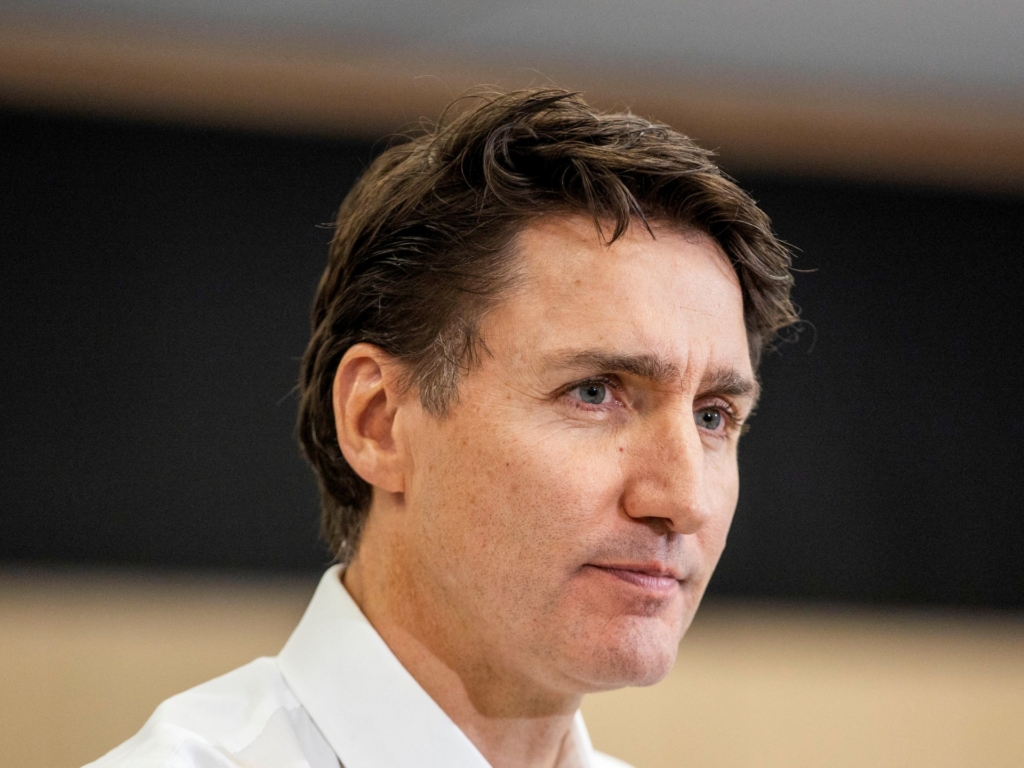Bu içerikte, Meksika ve Kanada liderlerinin, ABD Başkanı seçilen Donald Trump’ın göreve başladığında iki ülkeye %25 gümrük vergisi uygulama sözü vermesinin ardından diyaloğu ve işbirliğini teşvik ettiği belirtilmektedir. Trump’ın gümrük vergisi tehditleri pazarları etkilemiş ve Meksika pezosu ilk etapta ABD Doları karşısında yaklaşık %2 zayıflamıştır. Ayrıca, otomobil üreticileri Ford ve General Motors gibi şirketlerin hisseleri de düşüş göstermiştir. Üç ülke, Trump’ın tehdit ettiği gümrük vergileri konusunda anlaşma imzalayarak yeni Kuzey Amerika Serbest Ticaret Anlaşması (USMCA) ile NAFTA’yı değiştirmişlerdir. Trump’ın gümrük vergisi tehditlerinin müzakere taktiği olabileceği ve Amerikan ekonomisine büyük zarar verebileceği belirtilmektedir. Bu içerikte, içerik açıklaması oluşturulması gereken bir konu hakkında bilgi verilecektir. İçeriğin detaylarına göre açıklama metni oluşturulacak ve konunun ana hatları üzerinden okuyucuya bilgi aktarılacaktır.
[ad 1]
Kaynak: www.aljazeera.com
The leaders of Mexico and Canada are urging dialogue and cooperation after United States President-elect Donald Trump pledged to impose 25-percent tariffs on the two countries when he takes office early next year.
During a news conference on Tuesday, Mexican President Claudia Sheinbaum said she planned to send a letter to Trump stressing the need to work together on joint challenges.
“To one tariff will come another and so on until we put our common businesses at risk,” Sheinbaum said, warning that tariffs would cause inflation and job losses in both countries.
In a post on social media on Monday evening, Trump said he planned to “charge Mexico and Canada a 25% Tariff on ALL products coming into the United States”.
“This Tariff will remain in effect until such time as Drugs, in particular Fentanyl, and all Illegal Aliens stop this Invasion of our Country! Both Mexico and Canada have the absolute right and power to easily solve this long simmering problem.”
He also said he planned to impose “an additional 10% Tariff, above any additional Tariffs” on Beijing, which Washington views as its largest global competitor.
Trump, who won the November 5 presidential election over his Democratic rival Kamala Harris, had repeatedly said during his 2024 campaign that he would impose increased tariffs on all imports into the US.
The former president and his allies have portrayed the tariffs policy as a key tool to bring back jobs and manufacturing from overseas. Experts have said, however, that the move would increase costs for Americans.
On Tuesday, Canadian Prime Minister Justin Trudeau told reporters that he spoke with Trump on Monday evening after the Republican’s online posts. Trudeau said he stressed the longstanding ties between the two countries.
“We talked about some of the challenges that we can work on together. It was a good call,” he said, adding: “This is a relationship that we know takes a certain amount of working on, and that’s what we’ll do.”
The Liberal Party leader, whose popularity has dropped significantly over the past few years amid high costs of living and a housing crisis, is under pressure from Conservative politicians at the federal and provincial levels to resolve any problems before Trump takes office.
“The federal government needs to take the situation at our border seriously,” right-wing Ontario Premier Doug Ford said in a social media post on Monday night.
Danielle Smith, the right-wing premier of Canada’s oil-producing province of Alberta, also said Trump had “valid concerns” about the US-Canada land border, which stretches 6,416km (3,987 miles).
A 25 per cent tariff would be devastating to workers and jobs in both Canada and the U.S.
The federal government needs to take the situation at our border seriously. We need a Team Canada approach and response—and we need it now. Prime Minister Trudeau must call an urgent…
— Doug Ford (@fordnation) November 26, 2024
“As the largest exporter of oil and gas to the US, we look forward to working with the new administration to strengthen energy security for both the US and Canada,” she wrote on X.
Trudeau said on Tuesday that he had spoken with Ford and Quebec Premier Francois Legault and planned to convene a meeting with provincial leaders to discuss the US.
“There’s work to do, but we know how to do it,” the prime minister added.
‘Negotiating tactic’?
Trump’s threats have already impacted the markets. The Mexican peso initially weakened almost 2 percent against the US Dollar on Tuesday, and shares have dropped in automakers, including Ford and General Motors.
Asa McKercher, the Hudson research chair in Canada-US relations at St Francis Xavier University in Canada, noted that Trump often threatened to enact harsh policies during his first term in the White House from 2017 to 2021 but didn’t always follow through.
“My initial thought is that this is probably some sort of negotiating tactic rather than something he actually wants to go through with — in part because it would be hugely damaging to the American economy,” McKercher told Al Jazeera of Trump’s tariffs threat.
He explained that the tariffs would drive up prices on many things, including oil and gas supplies from Canada as well as food imports from Mexico.
The US and Canada are each other’s largest trading partners, exchanging nearly $2.7bn ($3.6bn Canadian) in goods and services across their shared border daily in 2023, according to Canadian government figures.
Meanwhile, US goods and services traded with Mexico totalled an estimated $855bn in 2022, the Office of the US Trade Representative said.

The three countries are signatories to the United States-Mexico-Canada Agreement (USMCA), which they signed in 2020 when Trump was president to replace the longstanding North American Free Trade Agreement (NAFTA).
“He’s being a bully, which is what he is, and he’s making these kind of threats to see what kind of goodies he can get,” McKercher said of Trump, adding that the Republican’s remarks about fentanyl and irregular migration appear more geared towards Mexico than Canada.
“That’s not really an issue in Canada-US relations,” he said.
During her news conference, Sheinbaum said her administration had always shown Mexico’s willingness to help fight the fentanyl epidemic in the US and that apprehensions of migrants and asylum seekers at the US-Mexico border were down.
However, Sheinbaum noted that criminal groups in Mexico were still receiving guns from the US. She said the region’s shared challenges require cooperation, dialogue and reciprocal understanding.
“We do not produce weapons. We do not consume the synthetic drugs,” she said. “Unfortunately, we have the people who are being killed by crime that is responding to the demand in your country.”






Yorumlar kapalı.